May 05, 2017 | Bill Seiler
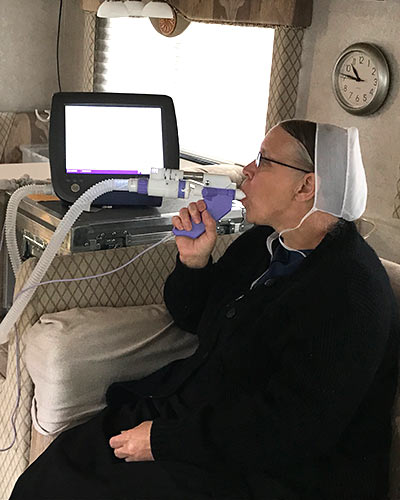
University of Maryland School of Medicine Research Confirms Small Exposure Produces Big Risks
New research at the University of Maryland School of Medicine (UM SOM) has found that secondhand smoke tends to have somewhat different effects on men and women. The research, conducted in a Pennsylvania Amish community where virtually no women smoke, found that women who were exposed to secondhand smoke had a greater risk for cardiovascular disease, while men exposed to secondhand smoke tended to have a higher body mass index (BMI).
The authors of the study, published in the journal PLoS ONE, say previous research on the effects of secondhand smoke, and smoking in general, have been difficult to interpret due to variables in the socioeconomic status and educational level of participants. To reduce these variables, the researchers studied members of the old order Amish (OOA), a community in Lancaster County, Pa. UM SOM research teams have conducted research in this community since 1995 through the UM SOM’s Amish Research Program.
“The way the Amish live makes them uniquely suited for this kind of study,” says lead investigator Robert M. Reed, MD, UM SOM associate professor of medicine and a pulmonary and critical care specialist at the University of Maryland Medical Center. “They live a lifestyle now that’s very similar to the lifestyle their ancestors lived many generations ago. They have a lot of physical activity, don’t drive, and the different Amish families live more similar lifestyles than do non-Amish populations.”
 Also unique, cigars and pipes represent the predominant forms of tobacco smoked by the Amish. Reed says these smoking products produce more noxious secondhand smoke than cigarettes. Smoking in the group as a whole is fairly modest – 34 percent of men in the study said they had ever smoked. Just two women in the group reported ever smoking.
Also unique, cigars and pipes represent the predominant forms of tobacco smoked by the Amish. Reed says these smoking products produce more noxious secondhand smoke than cigarettes. Smoking in the group as a whole is fairly modest – 34 percent of men in the study said they had ever smoked. Just two women in the group reported ever smoking.
The researchers employed a novel method to track exposure to secondhand smoke. “We first asked people their own personal smoking habits, and then, because we know exactly how all the Amish are related to each other, we were able to look at the family tree and extrapolate who had been exposed,” explains Reed. “We knew if Mr. X says he smoked, we can extrapolate from that that his family was exposed.”
According to Reed, this approach has never been taken before in studies of smoking and it avoids a problem that can affect this type of research, called recall bias. “Sometimes people with poor health are more inclined to think harder about past exposures, which lead to misleading results. Our study avoids that possibility,” Reed says.
The researchers examined cross-sectional data on 3,568 Amish who participated in three community surveys of cardiovascular health between 2001 and 2015. Data included tobacco use and secondhand smoke exposure from family members included in the study. Additionally, the researchers took blood samples, measured lung function and assessed vascular health. Smoking, which was limited to just men, was associated with lower lung function, higher BMI, lower HDL cholesterol (the “good” cholesterol), higher heart rate and poorer vascular health.
The impact of secondhand smoke exposure was more intense in people with more smokers in their families, including spouses, parents and siblings. In men, secondhand smoke was associated with higher BMI and with higher fasting glucose in men, suggesting a diabetes risk, but not in women. Reduced HDL cholesterol was seen only in women exposed to secondhand smoke; in men only, secondhand smoke was associated with a lower heart rate.
“The study confirms that even a small amount of secondhand smoke is harmful; it confirms prior findings and extends them by adding to the degree of certainty we have in the harmful associations we are seeing,” says Reed. He adds that the findings suggest the possibility of a significant role for mechanisms less clearly established in secondhand smoking, but recognized in association with active smoking, such as HDL and BMI.
 “The real strength of this study is that this is a big population with very low exposure, yet we see very striking results for direct exposure,” says the study’s senior author, Braxton D. Mitchell, PhD, MPH, professor of medicine, epidemiology and public health at the University of Maryland School of Medicine and vice chair for research in the Division of Endocrinology, Diabetes & Nutrition in the Department of Medicine. “I would not have expected to see such dramatic effects with these low exposures.”
“The real strength of this study is that this is a big population with very low exposure, yet we see very striking results for direct exposure,” says the study’s senior author, Braxton D. Mitchell, PhD, MPH, professor of medicine, epidemiology and public health at the University of Maryland School of Medicine and vice chair for research in the Division of Endocrinology, Diabetes & Nutrition in the Department of Medicine. “I would not have expected to see such dramatic effects with these low exposures.”
E. Albert Reece, M.D., Ph.D., M.B.A., vice president of medical affairs at the University of Maryland and dean of the School of Medicine, says, “This study suggests new avenues of research to understand more about the underlying mechanisms behind secondhand smoke. The fact that small amounts of exposure caused significant impact among Amish non-smokers, a population in which smoking is already at low levels, should be of concern to populations where smoking is much more prevalent.”
Tobacco smoking is the leading preventable cause of death in the United States, responsible for an estimated 480,320 deaths annually, including 41,280 deaths attributable to lung cancer and coronary heart disease related to secondhand smoke exposure, according to a 2014 report from the Office of the Surgeon General.
About the University of Maryland School of Medicine
Commemorating its 210th Anniversary, the University of Maryland School of Medicine was chartered in 1807 and is the first public medical school in the United States. It continues today as an innovative leader in accelerating innovation and discovery in medicine. The School of Medicine is the founding school of the University of Maryland and is an integral part of the 11-campus University System of Maryland. Located on the University of Maryland’s Baltimore campus, the School of Medicine works closely with the University of Maryland Medical Center and Medical System to provide a research-intensive, academic and clinically based education. With 43 academic departments, centers and institutes and a faculty of more than 3,000 physicians and research scientists plus more than $400 million in extramural funding, the School is regarded as one of the leading biomedical research institutions in the U.S. with top-tier faculty and programs in cancer, brain science, surgery and transplantation, trauma and emergency medicine, vaccine development and human genomics, among other centers of excellence. The School is not only concerned with the health of the citizens of Maryland and the nation, but also has a global presence, with research and treatment facilities in more than 35 countries around the world. http://medschool.umaryland.edu.
About the University of Maryland Medical Center
The University of Maryland Medical Center (UMMC) is comprised of two hospitals in Baltimore: an 800-bed teaching hospital – the flagship institution of the 12-hospital University of Maryland Medical System (UMMS) – and a 200-bed community teaching hospital, UMMC Midtown Campus. UMMC is a national and regional referral center for trauma, cancer care, neurocare, cardiac care, diabetes and endocrinology, women’s and children’s health, and has one of the largest solid organ transplant programs in the country. All physicians on staff at the flagship hospital are faculty physicians of the University of Maryland School of Medicine. At UMMC Midtown Campus, faculty physicians work alongside community physicians to provide patients with the highest quality care. UMMC Midtown Campus was founded in 1881 and is located one mile away from the University Campus hospital. For more information, visit www.umm.edu.
Learn More
Contact
Department of Anesthesiology
(410) 328-6120 (phone)
(410) 328-5531 (fax)
swalsh@som.umaryland.edu
University of Maryland School of Medicine
Bill Seiler
Media Relations
410-328-8919
bseiler@umm.edu
Related stories

Friday, December 15, 2023
UMSOM Researchers Discover First Ever Link Between Hemoglobin-Like Protein and Normal Cardiac Development
In a landmark study led by the University of Maryland School of Medicine, researchers discovered for the first time that a certain kind of protein similar to hemoglobin, called cytoglobin, plays an important role in the development of the heart. Specifically, it affects the correct left-right pattern of the heart and other asymmetric organs. The findings, published today in the journal Nature Communications, could eventually lead to the development of new therapeutic interventions to alter the processes that lead to these defects.

Monday, December 06, 2021
UM School of Medicine & Regeneron Researchers Link New Gene Variant in Amish Population to Lower Risk of Heart Disease
University of Maryland School of Medicine (UMSOM) researchers, working with scientists from the Regeneron Genetics Center (RGC), discovered a new gene variant associated with lower levels of heart-damaging LDL cholesterol and a blood clotting protein called fibrinogen that appears to significantly lower a person’s risk of heart disease. While the gene variant is extremely rare in the general population (less than 1 in 10,000), it is found in about 12 percent of those living in the Lancaster county, Pennsylvania Amish community, according to the study published today in the journal Science.
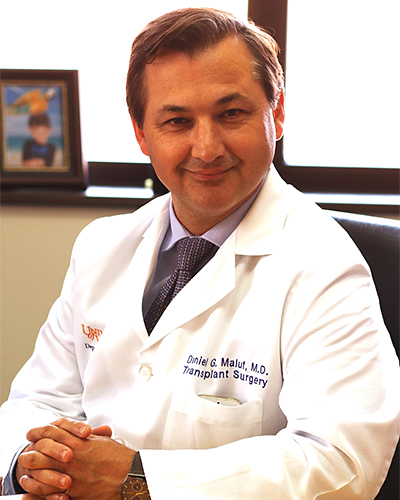
Thursday, May 20, 2021
University of Maryland Medicine Performs Two Successful Lung Transplants on Patients with COVID-19 Lung Damage
Two patients who were near death after COVID-19 destroyed their lungs, survived and are thriving due to state-of-the-art care and double-lung transplants by University of Maryland School of Medicine (UMSOM) surgeons at the UM Medical Center (UMMC).

Wednesday, November 15, 2017
Study: Process Used to Select Lung Transplant Patients May Need to be Changed
With a limited number of lungs available, deciding who gets a transplant can be a matter of life or death. New research from the University of Maryland School of Medicine (UMSOM) suggests that the system for choosing transplant recipients in chronic obstructive pulmonary disease (COPD) may underestimate how long a person might survive without a lung transplant and therefore, may mislead clinicians.
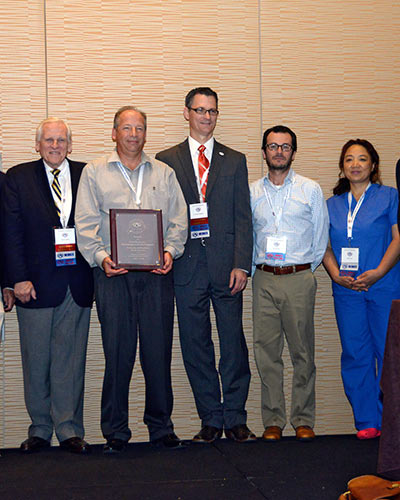
Tuesday, September 26, 2017
University of Maryland Medicine Receives Prestigious Award For Its Heart and Lung Resuscitation Program
A heart and lung resuscitation program at University of Maryland Medicine (UMM) has been recognized for its elite level of care by a leading group in the field.
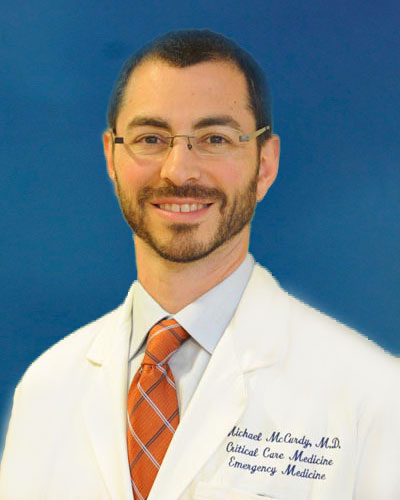
Monday, September 11, 2017
New Study Shows Novel Collaborative Intensive Care Can Significantly Improve Treatment for Heart Patients – and Cut Costs
Researchers at the University of Maryland School of Medicine (UM SOM) have found that a new, collaborative treatment model for seriously ill heart patients with breathing difficulties results in better care and lower costs.
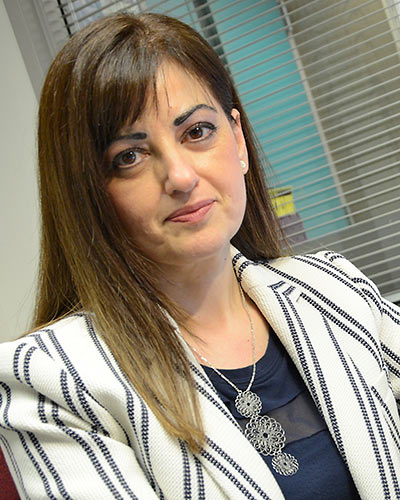
Wednesday, June 07, 2017
University of Maryland School of Medicine Researchers Identify Gene That May Play a Central Role in Heart Disease
Heart disease kills more than 600,000 Americans every year, which translates to more than one in every four deaths. Although lifestyle choices contribute to the disease, genetics play a major role. This genetic facet has remained largely mysterious. But new research by scientists at the University of Maryland School of Medicine (UM SOM) has identified what may be a key player: a mutated gene that leads to irregular heartbeat, which can lead to a dangerously inefficient heart.
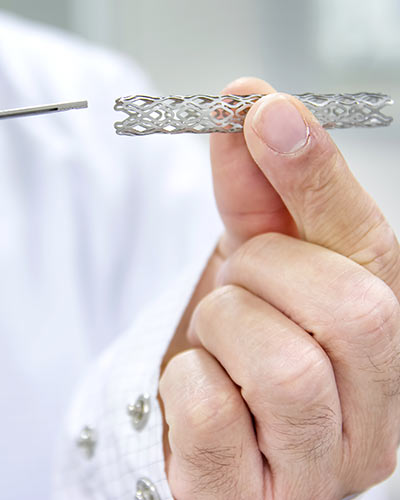
Wednesday, January 11, 2017
University of Maryland Medical Center Offers Genetic Testing as Standard of Care to Help Improve Outcomes for Heart Stent Patients
The University of Maryland Medical Center (UMMC) is now offering a simple genetic test to patients who receive heart stents to determine whether they have a genetic deficiency that affects how they respond to a common drug to prevent blood clots. Patients are typically given the medication, clopidogrel, to prevent cardiovascular events after having a stent placed in a coronary artery to treat a blockage.

Tuesday, December 20, 2016
First U.S. Babies Treated in Unique Study of Adult Stem Cell Therapy for Congenital Heart Disease
In a first-in-children randomized clinical study, medical researchers at the University of Maryland School of Medicine (UM SOM) and the Interdisciplinary Stem Cell Institute (ISCI) at the University of Miami Miller School of Medicine have begun testing to see whether adult stem cells derived from bone marrow benefit children with the congenital heart defect hypoplastic left heart syndrome (HLHS).
